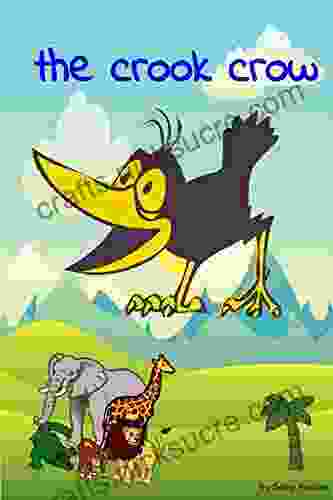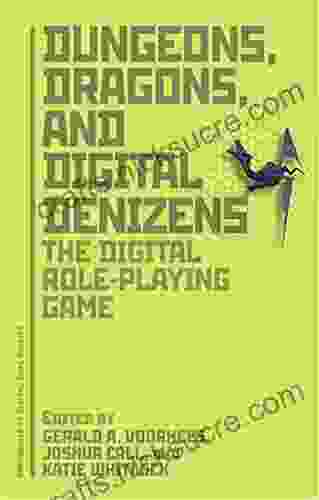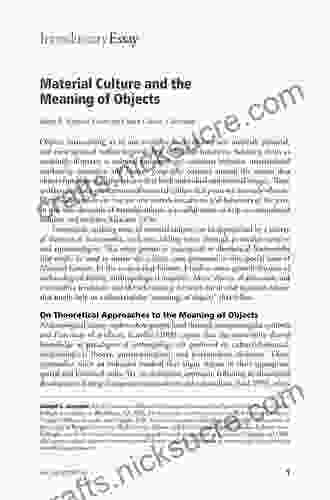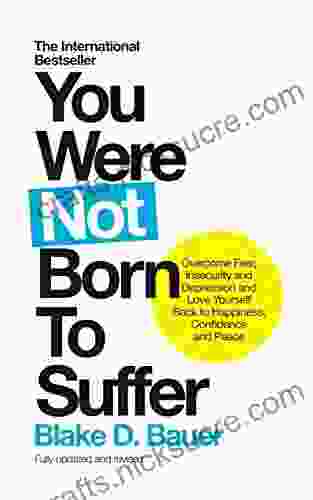How Science Was Born in 300 BC and Why It Had to Be Reborn

The Birth of Science
In the 6th century BC, the Greek philosopher Thales proposed that the universe was made up of a single substance, which he called "water." This was a radical idea at the time, as most people believed that the universe was made up of a variety of different substances, such as earth, air, fire, and water.
Thales' idea was based on his observations of the natural world. He noticed that water is essential for life, and that it can change its form from a liquid to a solid to a gas. He also noticed that water is found in all parts of the universe, from the oceans to the clouds.
Thales' idea was not universally accepted, but it did inspire other philosophers to begin to think about the natural world in a new way. In the 5th century BC, the philosopher Anaximander proposed that the universe was made up of an infinite substance, which he called "the apeiron." Anaximander's idea was based on his observations of the natural world, and he believed that the apeiron was the source of all things.
4.3 out of 5
| Language | : | English |
| File size | : | 11294 KB |
| Text-to-Speech | : | Enabled |
| Screen Reader | : | Supported |
| Enhanced typesetting | : | Enabled |
| Print length | : | 508 pages |
In the 4th century BC, the philosopher Empedocles proposed that the universe was made up of four elements: earth, air, fire, and water. Empedocles believed that these four elements were constantly interacting with each other, and that this interaction was the source of all change in the universe.
The ideas of Thales, Anaximander, and Empedocles were the foundation of Greek science. These philosophers began to use reason and logic to explain the natural world, and they made significant progress in understanding the universe. However, Greek science reached its peak in the 3rd century BC, and after that it began to decline.
The Decline of Greek Science
There were a number of factors that contributed to the decline of Greek science. One factor was the rise of Christianity. Christianity is a monotheistic religion, and it teaches that the universe was created by God. This belief discouraged people from studying the natural world, as they believed that God had already revealed all that they needed to know.
Another factor that contributed to the decline of Greek science was the rise of the Roman Empire. The Romans were a practical people, and they were more interested in engineering and technology than in science. This led to a decline in funding for scientific research, and it made it difficult for scientists to pursue their work.
By the 5th century AD, Greek science was in a state of decline. The great libraries of Alexandria and Pergamon had been destroyed, and most of the scientific knowledge that had been accumulated over the centuries had been lost.
The Rebirth of Science
Science was reborn in the 16th century AD, with the work of Copernicus, Galileo, and Kepler. These scientists used mathematics and observation to develop new theories about the universe. Copernicus proposed that the sun, not the Earth, was the center of the solar system. Galileo proved that objects fall at the same speed regardless of their weight. Kepler discovered the laws of planetary motion.
The work of Copernicus, Galileo, and Kepler laid the foundation for the scientific revolution. Science began to flourish again, and it has continued to progress ever since.
Why Science Had to Be Reborn
Science had to be reborn because the old ways of understanding the natural world were no longer adequate. The rise of Christianity and the Roman Empire had led to a decline in scientific research, and most of the scientific knowledge that had been accumulated over the centuries had been lost.
Science was reborn in the 16th century AD because people began to question the old ways of understanding the natural world. They began to use reason and logic to explain the universe, and they made significant progress in understanding the world around them.
Science is a vital part of our world. It helps us to understand the universe, to develop new technologies, and to improve our lives. Science is always changing, and it is constantly expanding our knowledge of the world.
4.3 out of 5
| Language | : | English |
| File size | : | 11294 KB |
| Text-to-Speech | : | Enabled |
| Screen Reader | : | Supported |
| Enhanced typesetting | : | Enabled |
| Print length | : | 508 pages |
Do you want to contribute by writing guest posts on this blog?
Please contact us and send us a resume of previous articles that you have written.
 Fiction
Fiction Non Fiction
Non Fiction Romance
Romance Mystery
Mystery Thriller
Thriller SciFi
SciFi Fantasy
Fantasy Horror
Horror Biography
Biography Selfhelp
Selfhelp Business
Business History
History Classics
Classics Poetry
Poetry Childrens
Childrens Young Adult
Young Adult Educational
Educational Cooking
Cooking Travel
Travel Lifestyle
Lifestyle Spirituality
Spirituality Health
Health Fitness
Fitness Technology
Technology Science
Science Arts
Arts Crafts
Crafts DIY
DIY Gardening
Gardening Petcare
Petcare John Taylor
John Taylor Sheri Van Dijk
Sheri Van Dijk Abigail Hing Wen
Abigail Hing Wen Linda Sarris
Linda Sarris Rolf Mowatt Larssen
Rolf Mowatt Larssen Tom Migdalski
Tom Migdalski Stephen Brennan
Stephen Brennan Andrew Campanella
Andrew Campanella Terry Palechuk
Terry Palechuk Thubten Yeshe
Thubten Yeshe Scott Butler
Scott Butler Sherri Granato
Sherri Granato Lenyfer Garrido
Lenyfer Garrido Roman Dial
Roman Dial Glen Finland
Glen Finland Arthur Turrell
Arthur Turrell Adam Boduch
Adam Boduch Gloria Atanmo
Gloria Atanmo Gail Buckland
Gail Buckland Steve Mcmenamin
Steve Mcmenamin Michelle Obama
Michelle Obama Adam Frank
Adam Frank Garrett Mcnamara
Garrett Mcnamara Mark Strom
Mark Strom Ralph Villiger
Ralph Villiger Erika Fatland
Erika Fatland Adam Chandler
Adam Chandler Kenn Kaufman
Kenn Kaufman Kemi Iwalesin
Kemi Iwalesin Amber Fox
Amber Fox Jennifer Finney Boylan
Jennifer Finney Boylan Aaron Mccargo
Aaron Mccargo Lisa M Schab
Lisa M Schab Emily Suzanne Clark
Emily Suzanne Clark James Surowiecki
James Surowiecki Lavinia Collins
Lavinia Collins Abby Sunderland
Abby Sunderland Christina Hoff Sommers
Christina Hoff Sommers Maya Lang
Maya Lang Brian L Gorman
Brian L Gorman Helen C Rountree
Helen C Rountree George J Hademenos
George J Hademenos Laura Ray
Laura Ray Carmen Moreno
Carmen Moreno Paul Chiasson
Paul Chiasson Abigail Marshall
Abigail Marshall Abu Mussab Wajdi Akkari
Abu Mussab Wajdi Akkari Christophe Jaffrelot
Christophe Jaffrelot Ron Jones
Ron Jones Zoe Hamlet Silva
Zoe Hamlet Silva Ben Cohen
Ben Cohen Adam H Balen
Adam H Balen Daphne Poltz
Daphne Poltz Adam J Rosh
Adam J Rosh Achille Rubini
Achille Rubini Norton Juster
Norton Juster Adam Lazarus
Adam Lazarus Moon Ho Jung
Moon Ho Jung Charlie Barker
Charlie Barker Casey Robson
Casey Robson Kel Carpenter
Kel Carpenter Teresa Finney
Teresa Finney Benjamin Roberts
Benjamin Roberts Jimmy Houston
Jimmy Houston Sarah Luddington
Sarah Luddington T L Christianson
T L Christianson Chris Worfolk
Chris Worfolk Tomi Adeyemi
Tomi Adeyemi Neil Oliver
Neil Oliver Marc Dando
Marc Dando Michel Roy
Michel Roy Rob Gray
Rob Gray Leigh Bardugo
Leigh Bardugo Richard Langer
Richard Langer Carley Roney
Carley Roney John Hancock
John Hancock Uri Bram
Uri Bram Martha Gellhorn
Martha Gellhorn Phong Thong Dang
Phong Thong Dang Natasha Preston
Natasha Preston Amelia Whitmore
Amelia Whitmore Jennifer Shannon
Jennifer Shannon Drew Harris
Drew Harris Jason Korol
Jason Korol Deborah Beck Busis
Deborah Beck Busis Michael N Mitchell
Michael N Mitchell Barbara Fox
Barbara Fox Sharon Boyd
Sharon Boyd Lisa Pineda
Lisa Pineda Stephanie Zeiss
Stephanie Zeiss Aaron Mahnke
Aaron Mahnke Christopher S Stewart
Christopher S Stewart Hans C Ohanian
Hans C Ohanian Aaron J Perry
Aaron J Perry Goodman Publishing
Goodman Publishing William Deresiewicz
William Deresiewicz Tom Rosenbauer
Tom Rosenbauer Ian Davis
Ian Davis Christian Beamish
Christian Beamish Sarah Maslin Nir
Sarah Maslin Nir Katrina Kahler
Katrina Kahler Bill Mckibben
Bill Mckibben Aiden Thomas
Aiden Thomas Kim Gosselin
Kim Gosselin David Winner
David Winner Sophie Mccartney
Sophie Mccartney Ann Mariah Cook
Ann Mariah Cook Edward J Larson
Edward J Larson Christopher Knight
Christopher Knight Al Baird
Al Baird Lisa M Given
Lisa M Given Wayne Westcott
Wayne Westcott Dawson Church
Dawson Church Ed Engle
Ed Engle Tomos Forrest
Tomos Forrest Barbara A Lewis
Barbara A Lewis Michael Egan
Michael Egan Arthur Atchabahian
Arthur Atchabahian Adam Enaz
Adam Enaz Todd Graves
Todd Graves Virginia Smith Harvey
Virginia Smith Harvey Gavin D J Harper
Gavin D J Harper Dick Edie
Dick Edie Alvin Alexander
Alvin Alexander Sean Mcmanus
Sean Mcmanus Darrin Bergman
Darrin Bergman P S Page
P S Page Kate Rope
Kate Rope Kayla Cottingham
Kayla Cottingham Adam Braus
Adam Braus Aaron Lee Johnson
Aaron Lee Johnson Asato Asato
Asato Asato Clara Shaper
Clara Shaper Mikki Daughtry
Mikki Daughtry Scott Meyers
Scott Meyers Matt Warshaw
Matt Warshaw Dan Shideler
Dan Shideler Mary Wong
Mary Wong Emma Crewe
Emma Crewe Shannon Hale
Shannon Hale Tony Soper
Tony Soper James Heberd
James Heberd Farah Shabazz Ii
Farah Shabazz Ii T L Lowery
T L Lowery Michael Johnson
Michael Johnson Paula Deen
Paula Deen Kevin A Morrison
Kevin A Morrison Stephen Abbott
Stephen Abbott R L Stine
R L Stine Barry Dainton
Barry Dainton Gerry Donohue
Gerry Donohue Douglas W Hubbard
Douglas W Hubbard Sheila Lamb
Sheila Lamb Stephen R Lawhead
Stephen R Lawhead Craig Timberg
Craig Timberg Rania Abouzeid
Rania Abouzeid Ilsa J Bick
Ilsa J Bick Iain Highfield
Iain Highfield Marie Cirano
Marie Cirano John Kean
John Kean Randall Hyde
Randall Hyde Jack Cavanaugh
Jack Cavanaugh Justin Driver
Justin Driver Peter Harrison
Peter Harrison Jennifer L Hunt
Jennifer L Hunt Abinash Das
Abinash Das Lee Sandlin
Lee Sandlin Monica Sorrenson
Monica Sorrenson Pearson Education
Pearson Education Katie Lear
Katie Lear Lisa Heffernan
Lisa Heffernan Andrea M Nelson Royes
Andrea M Nelson Royes Tim Larkin
Tim Larkin Ian Mcleod
Ian Mcleod Dmv Test Bank
Dmv Test Bank Felice Fox
Felice Fox Joe Simpson
Joe Simpson Adam D Scott
Adam D Scott Vivienne Sanders
Vivienne Sanders Vince Kotchian
Vince Kotchian Sam Jarman
Sam Jarman Louise Pickford
Louise Pickford Andy Couturier
Andy Couturier Vivian Gussin Paley
Vivian Gussin Paley Claire Santry
Claire Santry Caroline Kaufman
Caroline Kaufman Cosmas Inyang
Cosmas Inyang Jay Dawes
Jay Dawes Carl Vernon
Carl Vernon Sarah Moore
Sarah Moore Elisabetta Viggiani
Elisabetta Viggiani Abigail Alling
Abigail Alling Adam Koch
Adam Koch Jeremy Roenick
Jeremy Roenick Shari Eskenas
Shari Eskenas Irene Lewis Mccormick
Irene Lewis Mccormick Stefan Ball
Stefan Ball Ada Calhoun
Ada Calhoun Lillian Cumic
Lillian Cumic Marvin Valerie Georgia
Marvin Valerie Georgia Peter David
Peter David Claire Ahn
Claire Ahn Paul Mclerran
Paul Mclerran Heather Lynn
Heather Lynn Rose Ann Hudson
Rose Ann Hudson Og Mandino
Og Mandino Matt Owens
Matt Owens Xiuhtezcatl Martinez
Xiuhtezcatl Martinez Gerald A Voorhees
Gerald A Voorhees Jeremy Shinewald
Jeremy Shinewald Laura Peyton Roberts
Laura Peyton Roberts Ken Retallic
Ken Retallic Jeremy Paxman
Jeremy Paxman Abbey Curran
Abbey Curran Adam J Cox
Adam J Cox Jenny Han
Jenny Han Dan Morris
Dan Morris Kit Bauman
Kit Bauman Scott Carney
Scott Carney Bathroom Readers Institute
Bathroom Readers Institute Michael Gruenbaum
Michael Gruenbaum Randi Hutter Epstein
Randi Hutter Epstein Lin Wellford
Lin Wellford G Bailey
G Bailey Carolyn Jessop
Carolyn Jessop Aaron Reed Msn Crna
Aaron Reed Msn Crna Taylan Hoca
Taylan Hoca Christopher Pike
Christopher Pike Jim Willis
Jim Willis Jon Butterworth
Jon Butterworth Aaron Reed
Aaron Reed Jessie Hartland
Jessie Hartland Sean Lewis
Sean Lewis Sissy Goff
Sissy Goff Timothy Phelps
Timothy Phelps Seth Kugel
Seth Kugel Gregor Clark
Gregor Clark Eze Ugbor
Eze Ugbor Laura Sebastian
Laura Sebastian Chaz Scoggins
Chaz Scoggins Ronald Kaine
Ronald Kaine Gil Capps
Gil Capps Jessica Hepburn
Jessica Hepburn Vikas Kakwani
Vikas Kakwani Steve Roper
Steve Roper Nick Holt
Nick Holt J Robert King
J Robert King Irakli Makharadze
Irakli Makharadze Cornel West
Cornel West Rachel Caine
Rachel Caine Collins Kids
Collins Kids Shuai Huang
Shuai Huang An American Citizen
An American Citizen Abigail Pogrebin
Abigail Pogrebin Dan Werb
Dan Werb Liza Angela
Liza Angela Baba Ifa Karade
Baba Ifa Karade Abigail Hair
Abigail Hair George John Romanes
George John Romanes Laura Gao
Laura Gao Daniel Carter Beard
Daniel Carter Beard Abdul Foster
Abdul Foster Hillary Allen
Hillary Allen Helen Scales
Helen Scales Maureen Duffin Ward
Maureen Duffin Ward Jacob Neumann
Jacob Neumann Jim Morekis
Jim Morekis Brigitte Jordan
Brigitte Jordan Carl Jones
Carl Jones Brandon Neice
Brandon Neice Ariana Eagleton
Ariana Eagleton Steve Griffith
Steve Griffith Domenica Marchetti
Domenica Marchetti Barbara Decker
Barbara Decker Lynn Alley
Lynn Alley Charles Fernyhough
Charles Fernyhough Bill Loguidice
Bill Loguidice Tali Edut
Tali Edut Adam Becker
Adam Becker Lynn Rush
Lynn Rush Richard Lighthouse
Richard Lighthouse Abraham Silberschatz
Abraham Silberschatz Debbie Elicksen
Debbie Elicksen Abbas Kazerooni
Abbas Kazerooni Nancy Mohrbacher
Nancy Mohrbacher Brian Greene
Brian Greene Robert Fritz
Robert Fritz Devika Primic
Devika Primic Gary Sakuma
Gary Sakuma O Thomas Gift
O Thomas Gift Chuck Callaway
Chuck Callaway Fred Fields
Fred Fields Annie Nicholas
Annie Nicholas Miranda Kenneally
Miranda Kenneally Achref Hassini
Achref Hassini Dr Robert Pasahow
Dr Robert Pasahow Rick Sekuloski
Rick Sekuloski Debbie Ford
Debbie Ford Elena Aguilar
Elena Aguilar Sorin Dumitrascu
Sorin Dumitrascu Barbara Natterson Horowitz
Barbara Natterson Horowitz E P Marcellin
E P Marcellin Mary Roach
Mary Roach Suzanne Corkin
Suzanne Corkin Jack Moore
Jack Moore David Feddes
David Feddes Stuart Firestein
Stuart Firestein Maxine Levaren
Maxine Levaren Charles H Kraft
Charles H Kraft Richard Sattora
Richard Sattora Gladys Chepkirui Ngetich
Gladys Chepkirui Ngetich Linford Stutzman
Linford Stutzman Abigail Melton
Abigail Melton Bobby Reyes
Bobby Reyes Emily K Neuburger
Emily K Neuburger Mark Januszewski
Mark Januszewski Amber Domoradzki
Amber Domoradzki Jane Gross
Jane Gross Sarah K L Wilson
Sarah K L Wilson Chris Jericho
Chris Jericho Megan Lane
Megan Lane Abby Hafer
Abby Hafer Randy Walker
Randy Walker Fumio Sasaki
Fumio Sasaki Ken Springer
Ken Springer Agustin Fuentes
Agustin Fuentes Rory Miller
Rory Miller Kaylynn Flanders
Kaylynn Flanders Lisa Latimer
Lisa Latimer Winston Chang
Winston Chang Lois G Schwoerer
Lois G Schwoerer Tim Jarvis
Tim Jarvis Adam Galinsky
Adam Galinsky Sam J Miller
Sam J Miller Bruce Van Brunt
Bruce Van Brunt Alifya And Umesh Mohite
Alifya And Umesh Mohite Richelle Mead
Richelle Mead Charles L Byrne
Charles L Byrne Reinette Biggs
Reinette Biggs Barry Robinson
Barry Robinson David G Brown
David G Brown Aaron Oster
Aaron Oster Al Barkow
Al Barkow Jay Ruud
Jay Ruud Rachael Ray
Rachael Ray Colin Hunter
Colin Hunter Lynn E Ponton
Lynn E Ponton Abigail Tucker
Abigail Tucker Emily J Taylor
Emily J Taylor Scott Parsons
Scott Parsons Adam Freeman
Adam Freeman Jeremy Miles
Jeremy Miles Al Yellon
Al Yellon Betsy Miller
Betsy Miller Andrew Skurka
Andrew Skurka Allan Sand
Allan Sand Michael Baigent
Michael Baigent Steven Alan Childress
Steven Alan Childress Thomas Wilson
Thomas Wilson Abdelkader Nouiri
Abdelkader Nouiri M J Parisian
M J Parisian Peter Sagal
Peter Sagal Marlene Wagman Geller
Marlene Wagman Geller Lucy Letcher
Lucy Letcher Genius Reads
Genius Reads Conrad Bauer
Conrad Bauer Aaron Blight
Aaron Blight Rex Ogle
Rex Ogle Paul Schneider
Paul Schneider Christopher Monahan
Christopher Monahan Robert Allans
Robert Allans Garo Yepremian
Garo Yepremian Al Desetta
Al Desetta Aliza Green
Aliza Green Tom Jackson
Tom Jackson Susan Walton
Susan Walton Man Kam Lo
Man Kam Lo Adam Lashinsky
Adam Lashinsky Aaron Hahn
Aaron Hahn Stacy Eaton
Stacy Eaton Israel Finkelstein
Israel Finkelstein Kathy Koch Phd
Kathy Koch Phd Laurence Steinberg
Laurence Steinberg Jasna Tuta
Jasna Tuta Lucio Russo
Lucio Russo David Warriner
David Warriner Abby Haight
Abby Haight Cassandra Eason
Cassandra Eason Axie Oh
Axie Oh Michael Crawley
Michael Crawley Jennifer Ackerman
Jennifer Ackerman Sheldon Axler
Sheldon Axler Ned Johnson
Ned Johnson Tamora Pierce
Tamora Pierce Erik Scott De Bie
Erik Scott De Bie Sasha Abramsky
Sasha Abramsky Miriam Forman Brunell
Miriam Forman Brunell Deborah Madison
Deborah Madison Papus
Papus David Rensin
David Rensin Kristin Berry
Kristin Berry Sally Clarkson
Sally Clarkson Chella Quint
Chella Quint Adam Benshea
Adam Benshea Richard Martin
Richard Martin Brad Brewer
Brad Brewer Christopher Black
Christopher Black Alicia Silverstone
Alicia Silverstone Gayle Forman
Gayle Forman Pamela Druckerman
Pamela Druckerman William Hamilton Gibson
William Hamilton Gibson David Simon
David Simon Ryan Smithson
Ryan Smithson Achim K Krull
Achim K Krull Horace Kephart
Horace Kephart Adam Kimelman
Adam Kimelman Aaron Graves
Aaron Graves John Caig
John Caig Chashiree M
Chashiree M Joy Neighbors
Joy Neighbors Scott Shaw
Scott Shaw Abbi Glines
Abbi Glines Walter Browder
Walter Browder Alicia C Simpson
Alicia C Simpson Eduardo Duran
Eduardo Duran Blake D Bauer
Blake D Bauer Susan Zeppieri
Susan Zeppieri Andy Dumas
Andy Dumas Winifred Conkling
Winifred Conkling Alexander Nehamas
Alexander Nehamas Robert Reid
Robert Reid Abridged Ed Edition Kindle Edition
Abridged Ed Edition Kindle Edition Stephen A Mitchell
Stephen A Mitchell Amby Burfoot
Amby Burfoot David Lipsky
David Lipsky Rosie Pope
Rosie Pope Chiara Giuliani
Chiara Giuliani Louise Thaden
Louise Thaden Abby Mcallister
Abby Mcallister Jennifer Greene
Jennifer Greene Stephanie Puglisi
Stephanie Puglisi Tom Mccarthy
Tom Mccarthy Martha C Nussbaum
Martha C Nussbaum Lisa Robertson
Lisa Robertson Harley Rustad
Harley Rustad Larry Carpenter
Larry Carpenter Ann Frederick
Ann Frederick Michael L Bloomquist
Michael L Bloomquist Renda Dionne Madrigal
Renda Dionne Madrigal Judi Kesselman Turkel
Judi Kesselman Turkel Zoyla Arana
Zoyla Arana Laurie Chaikind Mcnulty Lcsw C
Laurie Chaikind Mcnulty Lcsw C Kirk Bailey
Kirk Bailey Aaron James
Aaron James Achusim Michael
Achusim Michael Pat Chargot
Pat Chargot Gisle Solhaug
Gisle Solhaug Lindsey Ellison
Lindsey Ellison Curt Lader
Curt Lader Anthony Wilkenson
Anthony Wilkenson Abhishek V R
Abhishek V R Brian Hoggard
Brian Hoggard Programming Languages Academy
Programming Languages Academy Steve Rosenberg
Steve Rosenberg Beth Newell
Beth Newell Catherine Ryan Hyde
Catherine Ryan Hyde Ron Hotchkiss
Ron Hotchkiss Michelle Hodkin
Michelle Hodkin Stephen Gray
Stephen Gray Alan Robertson
Alan Robertson John D Gordon
John D Gordon Phil Gaimon
Phil Gaimon Meg Keys
Meg Keys Charles C Patrick
Charles C Patrick Melodie M Davis
Melodie M Davis Eugene H Merrill
Eugene H Merrill Abigail Owen
Abigail Owen Jeff Bauman
Jeff Bauman Corinne Andrews
Corinne Andrews Charles Thomas Jr
Charles Thomas Jr Phil Boyle
Phil Boyle
Light bulbAdvertise smarter! Our strategic ad space ensures maximum exposure. Reserve your spot today!

 Thomas MannThe Enigmatic Crook Crow: A Comprehensive Guide to Its Behavior, Symbolism,...
Thomas MannThe Enigmatic Crook Crow: A Comprehensive Guide to Its Behavior, Symbolism,...
 Everett BellNew Spin On Tennis: A Comprehensive Guide to the Revolutionary Evolution of...
Everett BellNew Spin On Tennis: A Comprehensive Guide to the Revolutionary Evolution of...
 Edgar Allan PoeUnveiling the Enigmatic World: A Comprehensive Guide to Secret Societies Box...
Edgar Allan PoeUnveiling the Enigmatic World: A Comprehensive Guide to Secret Societies Box... Hayden MitchellFollow ·15.3k
Hayden MitchellFollow ·15.3k Aldous HuxleyFollow ·7.4k
Aldous HuxleyFollow ·7.4k Kyle PowellFollow ·8.9k
Kyle PowellFollow ·8.9k Roy BellFollow ·16.5k
Roy BellFollow ·16.5k Albert CamusFollow ·6.9k
Albert CamusFollow ·6.9k Tom ClancyFollow ·18.1k
Tom ClancyFollow ·18.1k Javier BellFollow ·2.4k
Javier BellFollow ·2.4k Derrick HughesFollow ·6.3k
Derrick HughesFollow ·6.3k

 Doug Price
Doug PriceTracing the Evolution of Modern Psychoanalytic Thought:...
Psychoanalysis, once considered a radical...

 Devin Ross
Devin RossThe Digital Role Playing Game Approaches To Digital Game...
These are just a few of the many...

 F. Scott Fitzgerald
F. Scott FitzgeraldHistory from Things: Essays on Material Culture
History from Things:...

 Percy Bysshe Shelley
Percy Bysshe ShelleyThe Priest Lake Girl and the Cabin of Love: A True Story...
The Murder On...

 Isaiah Powell
Isaiah PowellThe Golf Mystic: Dick Edie's Unconventional Approach to...
In the annals of golf history, the name Dick...
4.3 out of 5
| Language | : | English |
| File size | : | 11294 KB |
| Text-to-Speech | : | Enabled |
| Screen Reader | : | Supported |
| Enhanced typesetting | : | Enabled |
| Print length | : | 508 pages |








